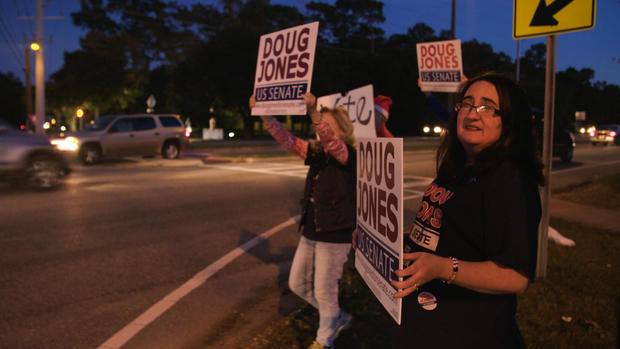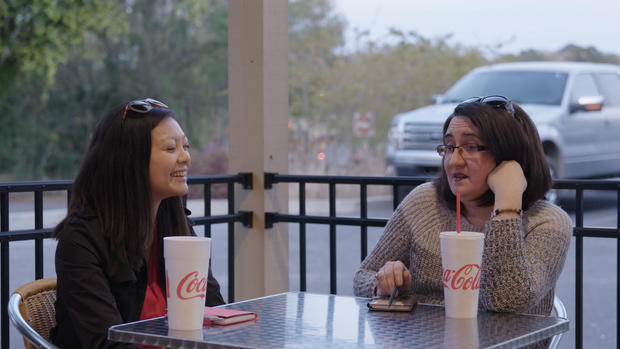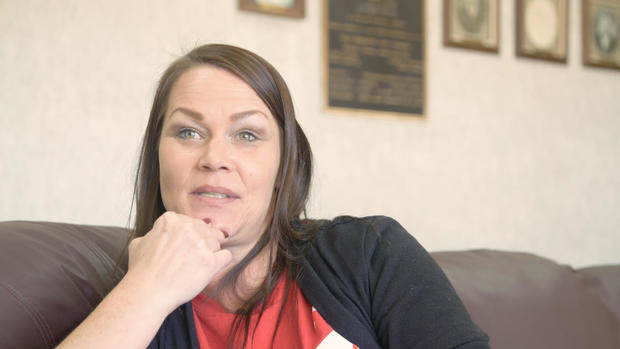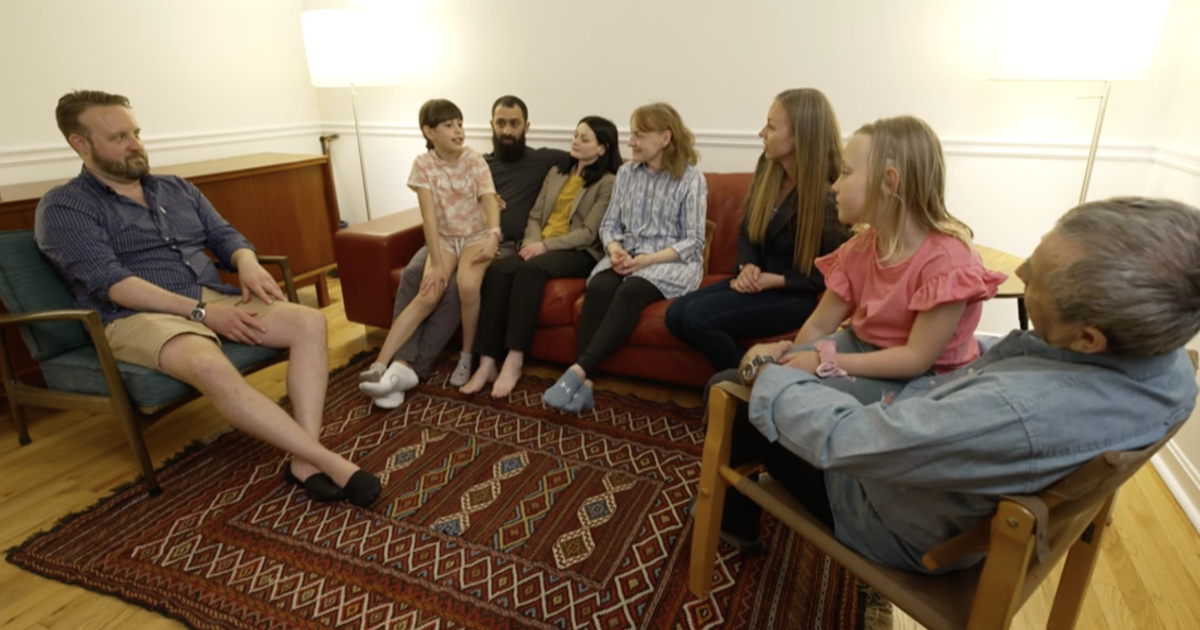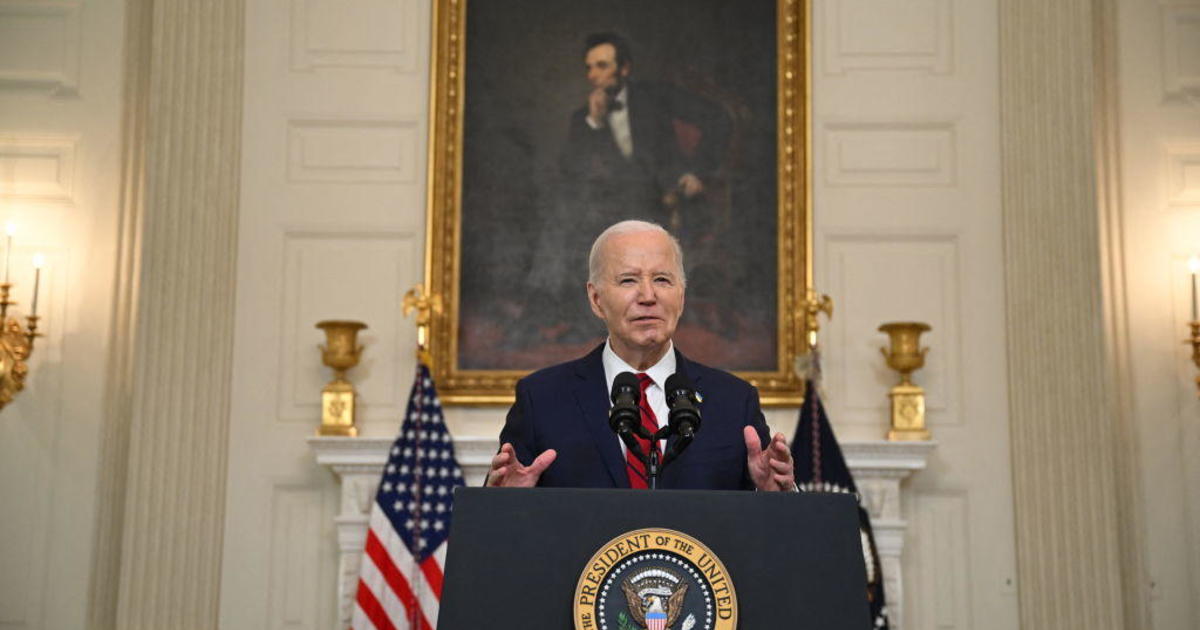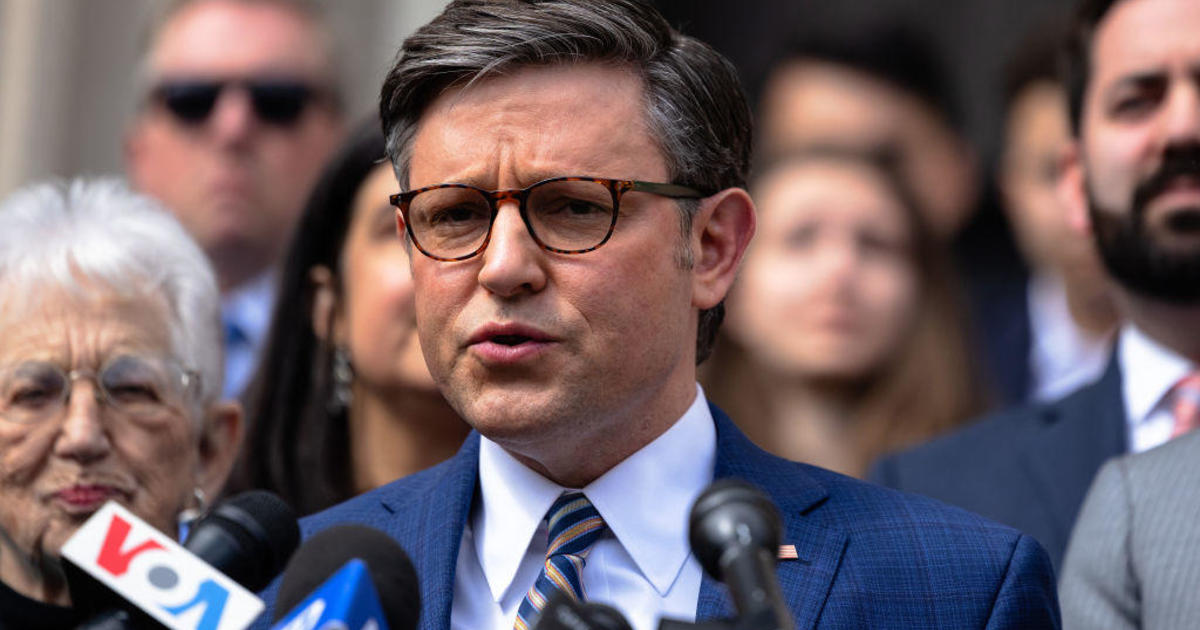Grassroots in Alabama: An Emerging Women's Movement
Something new is taking root amid the cotton and peanut fields and Gulf Coast beaches of Baldwin County, Alabama. A grassroots movement propelled by women is aiming to change politics here from the ground up.
"In Alabama we're taught that women are to be quiet, not cause trouble. But it seems like the climate has changed here," said Heather Brown, 42, a freelance writer, wife and mother of three who lives in the town of Summerdale.
She's not causing trouble, but she's not keeping quiet either. For her, it started last fall when Republican Senate candidate Roy Moore was accused of sexual misconduct by several women, including some who said they were in their teens when it happened.
"The sexual allegations against Roy Moore came out, and we just had the #MeToo movement, and it just seemed like the perfect time and opportunity to use our voices to speak our truths," Brown said.
Outraged and determined to take action, volunteers -- many of them new to politics -- knocked on doors and placed countless phone calls urging voters to do something Alabamians hadn't done in decades: elect a Democrat, Doug Jones, to the U.S. Senate.
In the lead up to the special election in December, Brown and local women organized a protest against Moore dressed in the red cloaks and white bonnets of "handmaids" -- women held as men's property in the dystopian novel and TV series, "The Handmaid's Tale."
Doug Jones won a hard-fought victory in a campaign watched nationwide. And Heather Brown realized she was just getting started.
"I never dreamed that this little 'handmaid' protest we were doing would change my life," she said. "When we had that big win with Doug Jones, it was like, 'Oh, we can do it!' You know, the little things we were doing helped bring about that win."
She decided to run for office herself, seeking a a seat on the Baldwin County Commission as part of a wave of new Democratic candidates challenging the local Republican power structure.
Brown is one of nine Democrats -- five of them women -- now running for office in a county where the party hasn't had local candidates on the ballot in more than a decade.
"I decided to run because I want to be the change, not just talk about being the change," she declared.
It's part of a trend seen nationwide as more women jump into political races to make their voices heard. According to the Center for American Women and Politics at Rutgers University, so far this year 233 women have filed to run for U.S. Senate, House and governors races, and another 350 are considered likely to file soon -- numbers that would break records.
But the newly energized Democrats in Alabama have their work cut out for them. Alabama is one of the reddest of red states, giving President Trump 62.9 percent of the vote in 2016.
"To be blue here in sea of red, you are seriously outnumbered. It takes a lot of conversation, a lot of relationship building, to show we're not really all that different," Brown said.
Volunteer political consultant Hanh Hua is helping her get a handle on what it will take to compete. Hua, 32, grew up in Alabama after her family immigrated from Vietnam.
"I'm a weird mix of like a lot of different cultures -- of like Vietnamese, American, Southern," she quipped.
She moved back home last year after more than a decade of living and working in Boston and Hanoi, explaining, "I just felt, like, this weird calling that I had to be in Alabama at this time."
She's found political organizing for the candidates and causes she supports to be a challenge, especially compared to the resources of the party in power.
"The Republican infrastructure's just super well organized and a well oiled machine," she said, while the state Democrats are still in startup mode.
"Actually when I consulted for the state party this summer, sometimes I wished I was Republican. I was like, 'Oh, infrastructure! Organization!' I wish I had that. But we'll slowly get there."
One of the issues driving Heather Brown to get involved in government is health care, and for her it's personal. She works from home and cares for her husband, Randy, who is disabled from complications of diabetes.
"You don't expect at 33 to hear from doctor, to hear you'll be permanently disabled, never work again. I wasn't even 30 at time. It's changed me a lot," she said. "And we went from your typical family to a family who had to struggle to raise their children. ... And I think going from somebody who knew what it was like to have the American dream and lose it, through something that you couldn't control ... I realized just how hard things can be."
She's bonded over those experiences with her friend Katrina Hardy, 40, a health care worker who also cares for a disabled husband.
"We agree a lot on where our health care is and what needs to be done in Medicare benefits and disability benefits because both of us have husbands that are disabled," Hardy said.
The bureaucratic problems her elderly patients encounter motivate her even more.
"You know, people like Miss Ella are why I'm going to involve myself in Washington at some point," she said. "They said she hadn't met her insurance deductible. So in order for this 93-year-old sweet woman to sleep, she has to pay $345 for a 30-day prescription. That breaks my heart."
But don't mistake Katrina Hardy for a progressive.
"I'm a big conservative," she declared, a proud Republican and Trump supporter who does not see eye to eye with her friend Heather on a host of other issues.
Their friendship manages to transcend politics, but it isn't always easy. On a shopping trip together, the friendly banter turns divisive and Heather holds her tongue as Katrina says she doesn't want refugees or "people from terrorist countries" coming to America.
Later she reflects, "Katrina is probably more representative of the majority of Alabama, especially Baldwin County, than I would be. But Katrina and I can talk about health care and use that to build a relationship where you can talk about things like immigration, that you don't agree on, and still stay civil."
Back home with Randy, Heather gets some encouragement not to give up.
"You're part of a big movement that's needed to happen for quite some time and it's nothin' but a good thing and it's gaining momentum every day," he tells her. "I mean, I'm tired of the good old boy system. The good old boy system ain't done nothin' in the last 12-16 years in lower Alabama. It's time for the good old girl system."
She laughs, "I like that! We're gonna start a new trend."
She celebrated the news that she's qualified for the ballot, and even though she admits the odds are stacked against her, she's keeping up the fight.
"I want to make sure when I have grandchildren, that they come into a word that is receptive to them no matter what. Maybe I want their future to not be a fight to be them."
